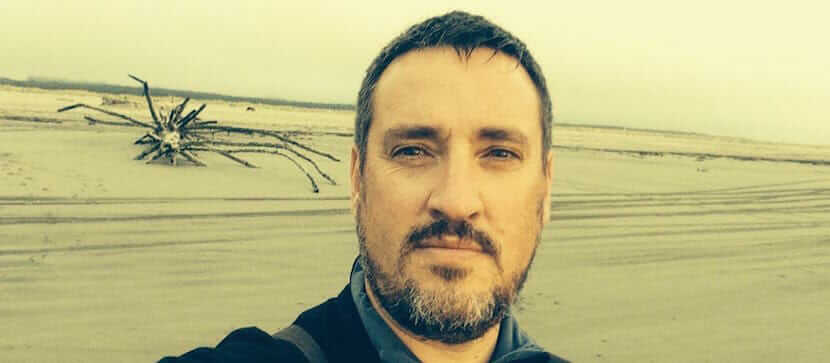by Marnie Jackson
I recently had the opportunity to interview Ted Sturdevant, who joined our board in the summer of 2015. With a background in public service and a vision of bringing more wisdom into our collective decision-making, he’s a voice for inclusion, accessibility, and a broader invitation to constituents around the region.
Ted has spent much of his public service career in the policy-making arena, with a focus on environmental policy. He’s held a number of positions in state government in both Oregon and Washington, from creating and running the Office of Community Relations with Governor Gary Locke to serving as Director of the Washington State Department of Ecology under Governor Christine Gregoire. He stepped down from his position as Director of Legislative Affairs and Policy for Governor Jay Inslee in July 2014, citing a desire to explore his deeper calling, and a feeling that change was needed elsewhere in order to allow greater wisdom in the governmental decision-making process.
“In the 30 years that I’ve been in state government in the Northwest it seems to have gotten harder for policy makers to apply wisdom in their decisions,” he said. “I’ve been looking around for a way to change that. I want to learn how our community decisions can be made with greater wisdom.” Ted said that our state, despite being on the leading edge of environmental policy nationwide, is still reluctant to adopt policies that are necessary to protect our future quality of life. “If we have this urgent need for policy change relative to sustainability and climate change, and if Washington State is some version of the best there is for wise environmental policy, yet we keep losing these fights in Washington, then collectively, we’re in trouble. If our governance system can’t deliver the change we need at the pace it’s needed, then we have to ask where is the potential transformative power for the kind of change we need?”
“I was casting about, looking for answers,” he said, “and a couple of people mentioned I should check out this place called the Whidbey Institute.” After doing a bit of research on the organization and its leadership, Ted wound up in conversation with Executive Director Heather Johnson. “We talked, and the rest is history. I discovered that this place . . . is incredibly fertile ground for big inquiry into our community, our world, and our future.”
“I’ve had, throughout my adult life, this evolving dream of being involved in a place where people could come for transformative experiences,” he said. “For one reason or another I’ve been putting it on the shelf for years. It didn’t make sense, it didn’t fit, but it didn’t go away. That fundamental notion has been with me for a long time.” Recently, while asking himself what work he was really called to do in the world, Ted saw the dream come back to the forefront. “It hit me like a brick,” he said. “Wow—this old dream I had of being part of a place of transformation has just been handed to me. I’ve been granted access to this, through an invitation to the board of the Whidbey Institute.”
Since resigning from his work in the policy-making field, Ted has stepped into a role as Principal with the Athena Group, where he provides a blend of consulting and coaching services, and has continued a longterm relationship with the land and with his geographic home near Olympia. “I’m a fourth-generation Oregonian,” he said. “I come from people who lived in connection to the land—farmers, ranchers, and loggers. I love the outdoors, from recreation to foraging for food. I’m astounded that I’m lucky enough to live here.”
Ted cites his connection with place and his spiritual practice as key elements in a lifelong effort to grow. “I’m always seeking transformation—to get as far as I can as a human being in this lifetime,” he said. “I’m walking the Buddhist path, and my relationship with my spiritual practice is a really big part of my life.” ![]()
In his work with the Whidbey Institute, Ted holds a vision of broadening access to Chinook and to our work to include a wider range of individuals. “How do we bring people here who need to be here but don’t have the means—for whom there is a financial or cultural barrier?”
In addition to broadening access, Ted said he’s considering how the work we do here might directly impact policy-making. “After I left the Governor’s office, I realized my work is in being a bridge and interpreter between the world of wide-open possibility—the world of the Whidbey Institute—and the world of policy-making. How can we bring what we learn here to bear on the quality of the decisions we make for our collective future? This is ground I’m eager to cover.”


Nice interview. I applaud Ted’s focus on inclusion and on making the connection between possibility and policy. In the big view the latter seems like the greatest challenge to humanity as we struggle with old models and power structures in a crisis that demands agile, bold action.